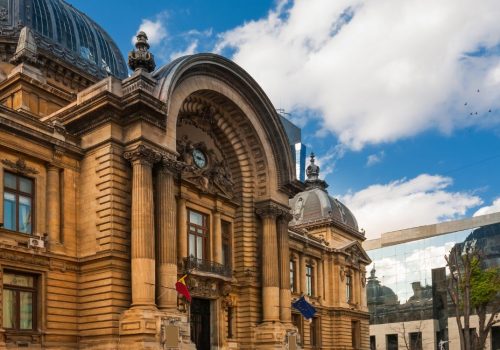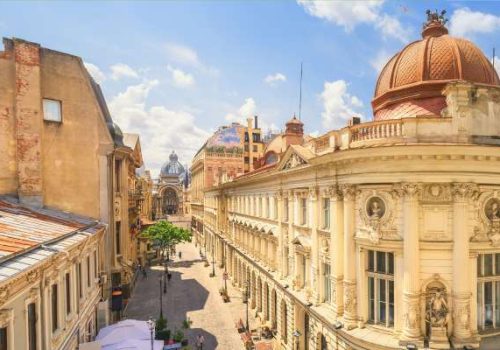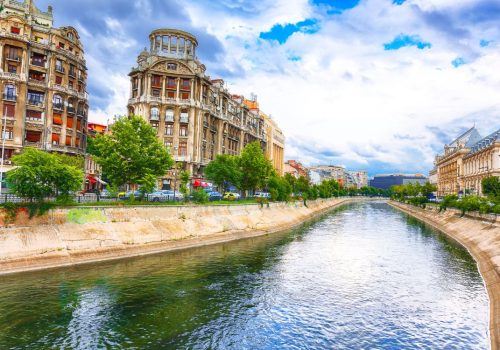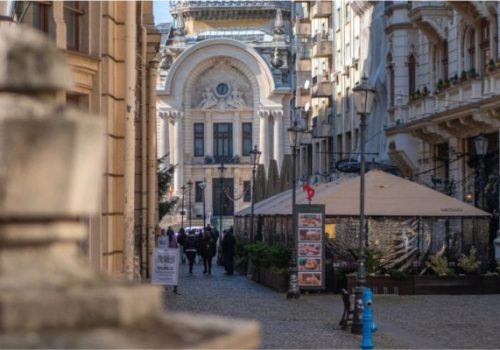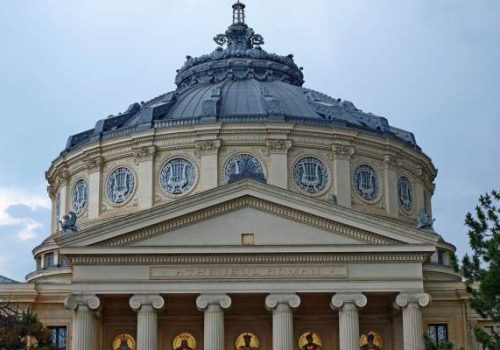Living and working in Bucharest
Bucharest, Romania‘s bustling capital, is a city of contrasts where historical landmarks coexist with modern skyscrapers. Known as the “Paris of the East,” Bucharest is a vibrant hub for culture, business, and education. With its affordable cost of living, expanding job market, and dynamic social scene, it’s no wonder Bucharest has become a popular destination for expats. This guide covers everything you need to know about living and working in Bucharest, from job opportunities and salaries to housing, lifestyle, and beyond.
Latest jobs in Bucharest and Romania
- Adventure jobs
- Romania
- Game Presenter
- Romania
Working in Bucharest
Working Conditions in Bucharest
Bucharest offers a professional and structured work environment that aligns with European Union labor standards. The standard workweek consists of 40 hours, typically from 9 am to 5 pm, Monday through Friday. Employees are entitled to 21 days of paid annual leave, along with 15 public holidays each year.
Many multinational companies in Bucharest have adopted flexible working hours and hybrid models, making the city an attractive destination for professionals in IT, finance, and other growing industries.
The working culture emphasizes punctuality, professionalism, and teamwork, with a growing focus on innovation and adaptability. While English is widely spoken in international companies, learning Romanian is highly recommended for building stronger connections and accessing more diverse opportunities.
Job Opportunities in Bucharest
Bucharest’s status as the economic heart of Romania makes it the center for job opportunities in the country. The city’s economy is diversified, with thriving industries such as IT, finance, telecommunications, healthcare, and education.
The IT sector is particularly robust, with Bucharest hosting numerous multinational tech companies and start-ups. Opportunities in software development, data analysis, and cybersecurity are abundant, with demand for skilled professionals continuing to rise.
The finance and banking sector is another major employer, with global firms such as ING, Société Générale, and Unicredit operating regional offices in the city. Roles in accounting, investment analysis, and financial technology are in high demand.
Telecommunications is a key industry in Bucharest, with companies like Orange, Vodafone, and Telekom employing thousands of workers in areas ranging from customer service to engineering.
For educators, Bucharest is home to international schools and universities, offering teaching roles for expats. The healthcare sector also provides opportunities, particularly for English-speaking professionals in private clinics and hospitals.
Networking is essential for finding opportunities in Bucharest. Professional events, LinkedIn, and local job platforms like BestJobs.ro and eJobs.ro are great resources for connecting with employers.
Salaries in Bucharest
Salaries in Bucharest are among the highest in Romania, reflecting the city’s economic prominence. The average monthly gross salary is approximately 6,000 RON (€1,200), though this varies widely depending on the industry and experience level.
- IT professionals and engineers often earn between 12,000 and 20,000 RON (€2,400–€4,000) per month.
- Finance and consulting roles typically pay 8,000 to 15,000 RON (€1,600–€3,000).
- Customer service and administrative positions offer salaries of around 4,000 to 6,000 RON (€800–€1,200).
Although salaries in Bucharest may be lower than in Western European capitals, the city’s affordable cost of living allows residents to maintain a high standard of living.
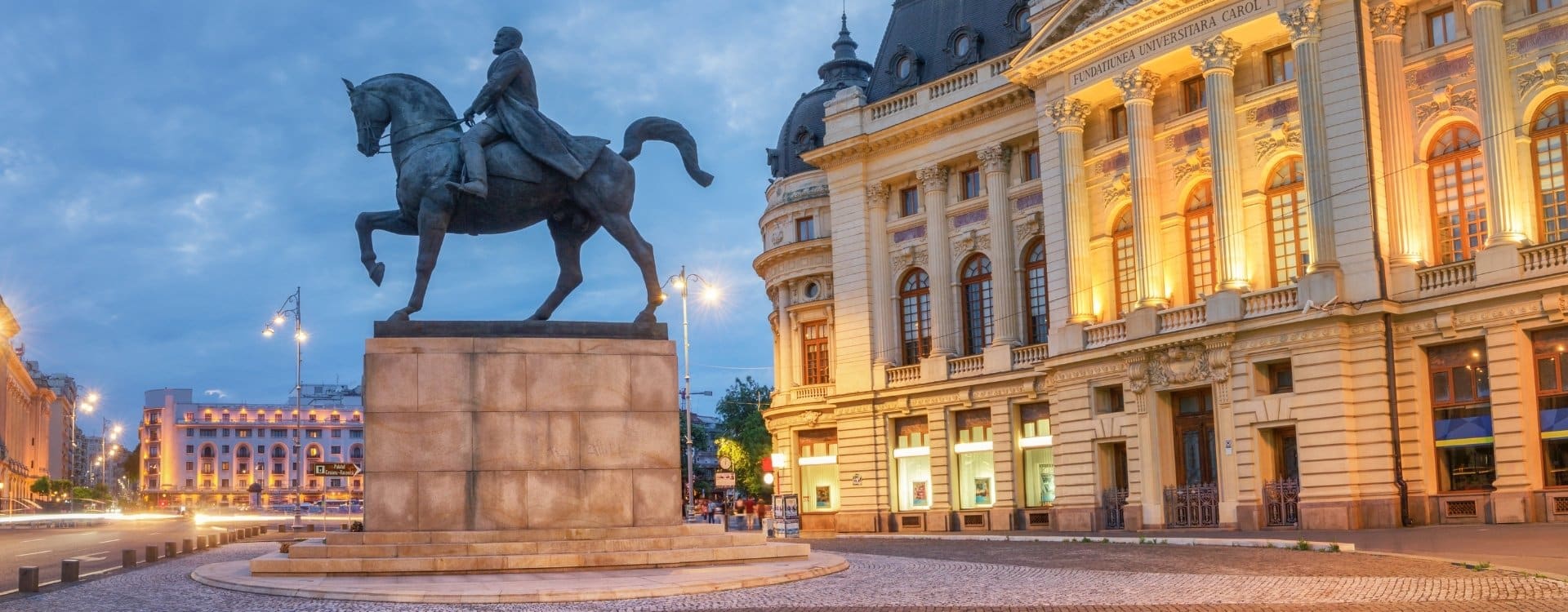
Income Tax in Bucharest
Romania has a flat income tax rate of 10%, one of the lowest in Europe. Employees also contribute to social security and healthcare, with deductions totaling approximately 35% of gross income.
Expats working in Bucharest must register with the National Tax Agency and obtain a tax identification number. Romania has signed double taxation agreements with
numerous countries, ensuring that expats are not taxed twice on the same income. The low tax rate, combined with Bucharest’s affordable living costs, makes the city an attractive destination for professionals seeking to maximize their disposable income.
Working Culture in Bucharest
Bucharest’s working culture is a blend of traditional values and modern practices. Punctuality and reliability are highly valued, and most workplaces operate with a hierarchical structure where respect for authority is expected. However, younger companies, particularly in the tech and creative industries, are adopting flat hierarchies and more informal environments.
Lunch breaks are an important part of the workday, and many employees enjoy hearty Romanian meals at nearby restaurants or canteens. Increasingly, Bucharest’s companies are embracing flexible hours, remote work options, and casual dress codes, especially in sectors like IT and marketing.
Networking and relationship-building are essential for career success in Bucharest. Developing trust and building personal connections with colleagues and clients can open doors to new opportunities.
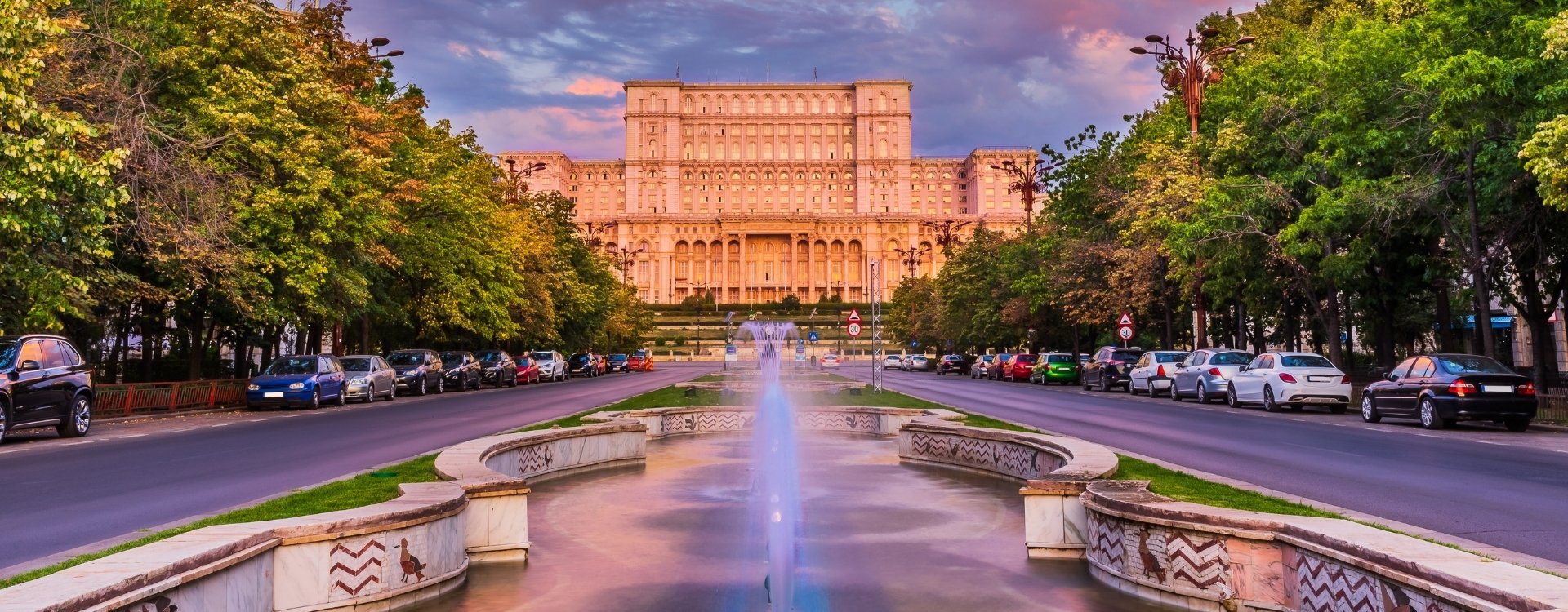
Living in Bucharest
Benefits of Living and Working in Bucharest
Bucharest offers a vibrant and dynamic lifestyle, with its mix of historical landmarks, modern amenities, and diverse cultural scene. The city is home to numerous parks, museums, theaters, and bustling nightlife, making it ideal for professionals and families alike. Its central location in Eastern Europe allows for easy travel to nearby countries like Bulgaria, Hungary, and Serbia, as well as Romania’s own stunning regions like Transylvania and the Black Sea coast.
The cost of living in Bucharest is relatively low compared to other European capitals, making it an excellent choice for expats looking to enjoy a high quality of life without breaking the bank. The city also boasts efficient public services, affordable healthcare, and a growing expat community.
Accommodation in Bucharest
Finding accommodation in Bucharest is relatively straightforward, with options for all budgets. A one-bedroom apartment in the city center typically costs between 2,500 and 4,500 RON (€500–€900) per month, while similar apartments in suburban neighborhoods like Drumul Taberei or Pipera are more affordable, ranging from 1,800 to 3,000 RON (€360–€600).
Shared apartments are popular among students and young professionals, with costs starting at 1,200 RON (€250) per person. Utilities, including electricity, heating, and water, add an additional 300 to 500 RON (€60–€100) monthly.
Most expats use platforms like Imobiliare.ro, Storia.ro, or work with real estate agents to find rentals. Landlords usually require a deposit equivalent to one or two months’ rent.
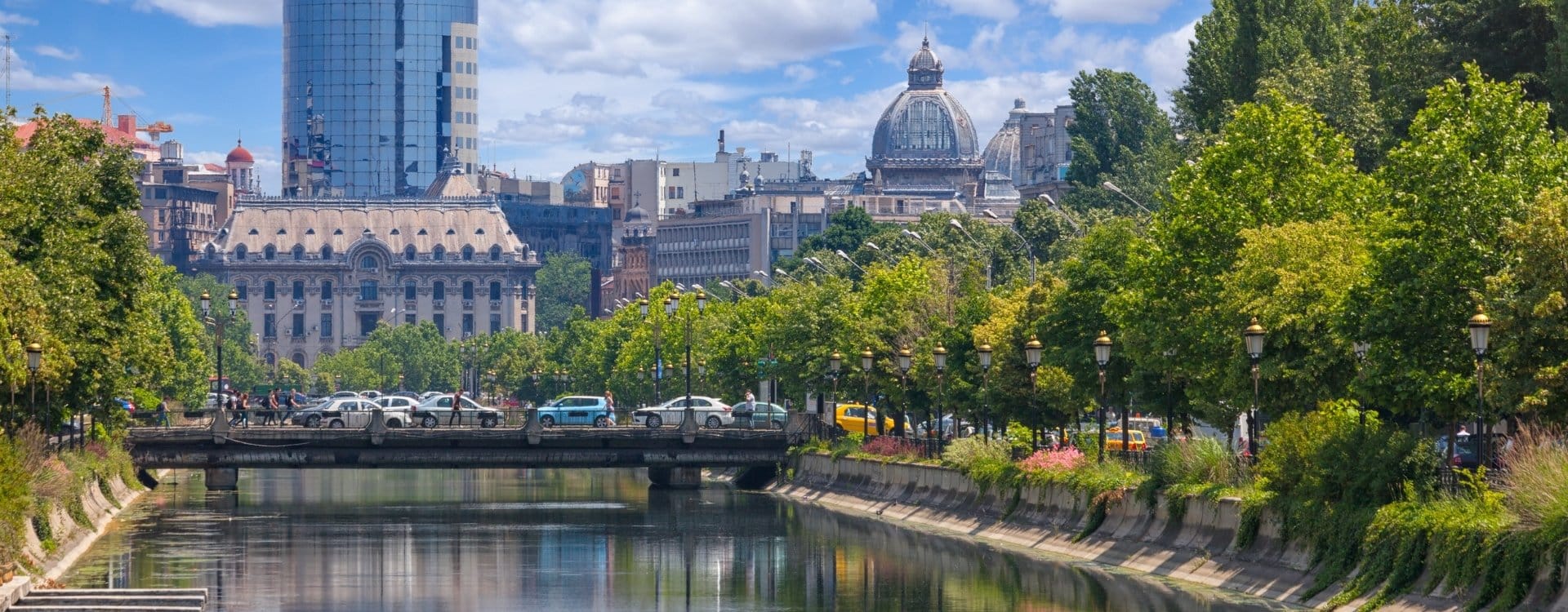
Cost of Living in Bucharest
Bucharest is one of the most affordable capitals in Europe, allowing residents to enjoy a comfortable lifestyle on a modest budget. A single person can live well on a monthly budget of 6,000 to 8,000 RON (€1,200–€1,600), depending on lifestyle preferences. Major expenses include:
- Groceries: Monthly grocery bills range from 600 to 1,000 RON (€120–€200). Supermarkets like Mega Image, Carrefour, and Kaufland offer a wide variety of affordable options.
- Dining Out: Eating out is inexpensive, with a meal at a mid-range restaurant costing 50 to 100 RON (€10–€20). Romanian dishes like sarmale (stuffed cabbage rolls) and mici (grilled sausages) are must-tries.
- Transportation: Bucharest’s public transport system is affordable, with a monthly pass costing around 80 RON (€16).
Where to Live in Bucharest
Bucharest’s neighborhoods cater to different lifestyles and preferences. Pipera and Herastrau are popular among expats and affluent locals, offering modern apartments, green spaces, and proximity to international schools. Dorobanți is another upscale neighborhood known for its trendy cafes and boutiques.
For a more central experience, Universitate and Victoriei place residents close to major business hubs, cultural attractions, and vibrant nightlife. Families may prefer suburban areas like Băneasa or Drumul Taberei, which offer quieter surroundings and access to parks and schools.
Public Transport in Bucharest
Bucharest’s public transport system includes buses, trams, trolleybuses, and a metro network. The metro is the fastest and most reliable option, with four main lines connecting key parts of the city. A monthly pass costs around 80 RON (€16), making it an affordable choice for commuting.
Cycling is becoming more popular in Bucharest, with bike-sharing services and cycling lanes gradually expanding. For intercity travel, Bucharest’s train and bus networks provide affordable connections to other parts of Romania.
Eating in Bucharest: Restaurants and Food Costs
Bucharest’s culinary scene is diverse, offering traditional Romanian dishes alongside international cuisines. Local favorites like ciorbă (sour soup), mămăligă (polenta), and papanași (fried doughnuts) are widely available at affordable prices.
Casual dining costs around 30 to 50 RON (€6–€10) for a meal, while fine dining experiences start at 100 RON (€20) per person. For groceries, local markets such as Piața Obor offer fresh produce, meats, and dairy products at lower prices than supermarkets.
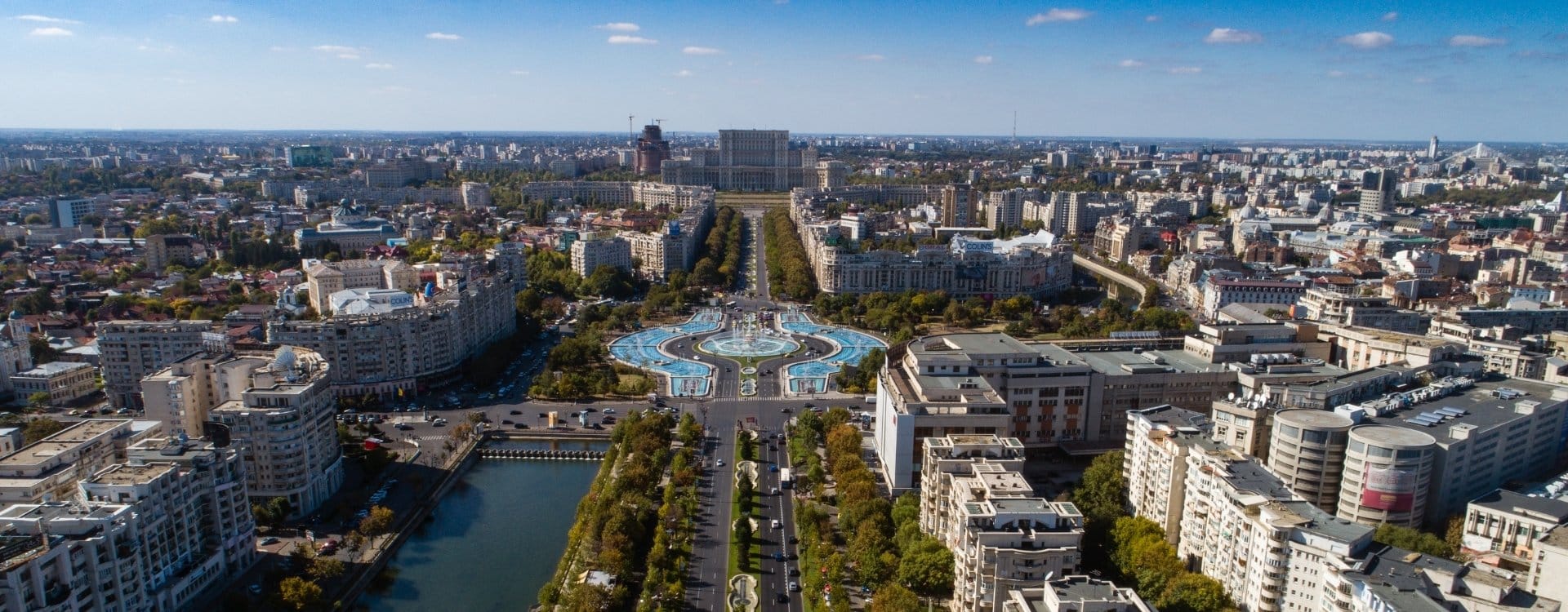
Bucharest’s Nightlife
Bucharest’s nightlife is lively and diverse, catering to all tastes. Lipscani, the Old Town, is the heart of the city’s entertainment scene, with an array of bars, pubs, and nightclubs. Rooftop bars like those at SkyBar or Nomad Skybar offer stunning views of the city, while jazz clubs and live music venues provide a more relaxed atmosphere.
Seasonal events, such as outdoor concerts and film screenings, add to Bucharest’s vibrant social life. During the summer, terraces and beer gardens become popular spots to unwind.
Weather in Bucharest
Bucharest experiences a continental climate, with hot summers and cold winters. Summer temperatures range from 25°C to 35°C (77°F to 95°F), while winters can dip to -5°C to -10°C (23°F to 14°F). Snow is common during winter, creating a picturesque cityscape.
Spring and autumn are mild and ideal for outdoor activities, such as exploring the city’s parks, like Herastrau Park and Carol Park, or attending cultural festivals.
What Not to Miss in Bucharest
Bucharest is rich in history and culture, offering numerous attractions to explore. The Palace of the Parliament, one of the world’s largest buildings, is a must-visit landmark. The Romanian Athenaeum and National Museum of Art showcase the city’s artistic heritage, while the Village Museum provides a glimpse into Romania’s rural traditions.
For nature lovers, Bucharest’s parks and gardens, such as Cismigiu Gardens, offer a tranquil escape from the urban hustle. Weekend trips to nearby destinations like Snagov Monastery or the Carpathian Mountains are also highly recommended.

